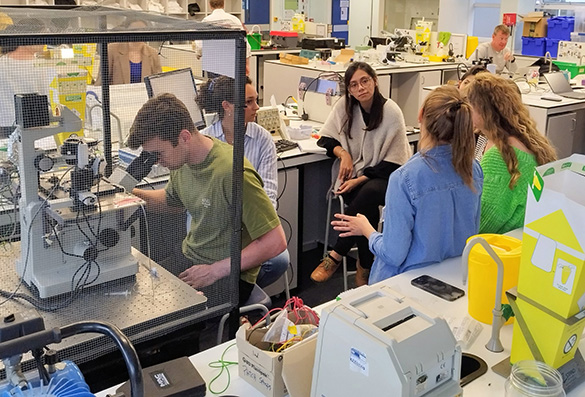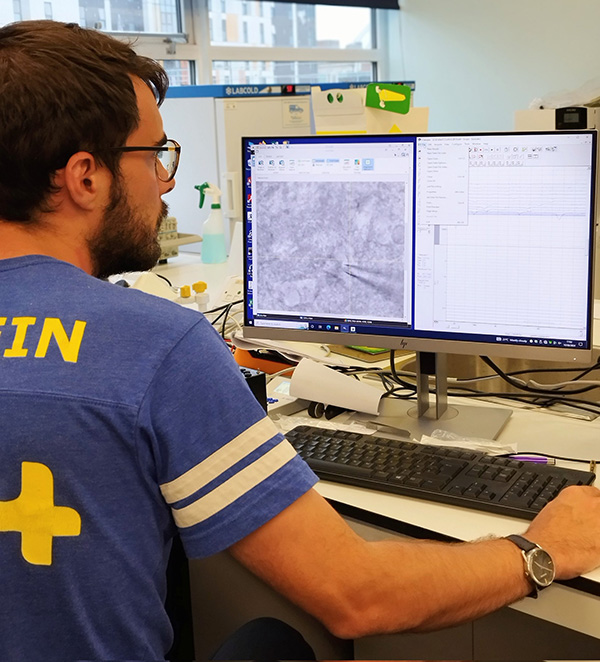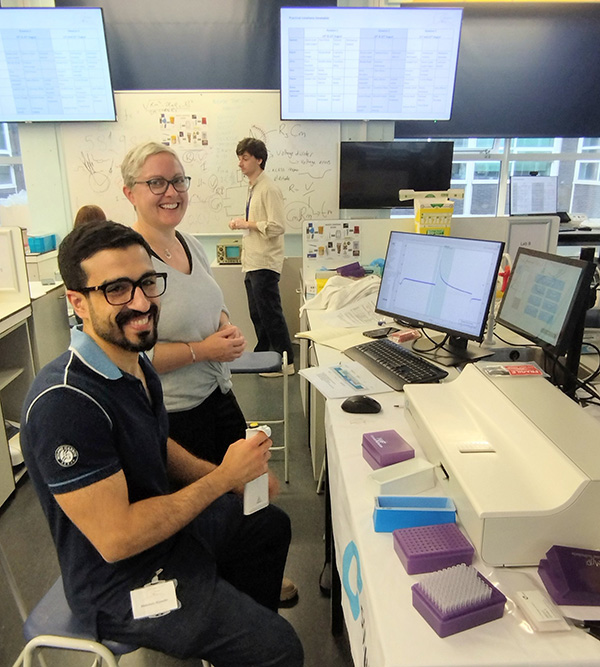
The University of Liverpool recently became the new home for the Cell Physiology Workshop (CPW), marking a new chapter for this long-running annual event
Originally held for nearly four decades at the Marine Biological Laboratories (MBL) in Plymouth, the workshop was relocated this year following the sad passing of one of its original organisers, Dr David Ogden.
The 39th CPW, held from 11-23 August, was led by Dr Richard Rainbow, a Senior Lecturer in Cardiovascular Research, who will manage the workshop in the future and ensure its hard-earned reputation is maintained.
The CPW dates back to 1984, when it was founded by Anne Warner, David Ogden, and Colin Brownlee. The workshop was created to address a pressing need for specialist training in electrophysiology, a relatively new field at the time. The first edition attracted 85 applicants for just 14 places, highlighting the demand for hands-on learning in this area. The MBL was the home of the CPW for 38 years, except during the COVID-19 pandemic when the workshop was moved online. Although the virtual format attracted over 400 students, it lacked the vital practical training that the in-person course provides.

The first CPW-Liverpool brought together an international group of students and instructors, with participants from countries such as the UK, Ireland, Sweden, Germany, and Italy.
Dr Rainbow, who researches the role of ion channels in cardio-protection and cardiotoxicity in the University’s Department of Cardiovascular and Metabolic Medicine, was joined by several other University colleagues in organising and delivering the workshop. Notable contributors included Dr Richard Barrett-Jolley, Dr Sean Brennan, Dr Lauren McGuinness, Dr Parveen Sharma, and Dr Sunil Logantha.
The workshop consisted of broad-ranging lecture sessions, and practical lab exercises, covering a wide range of topics such as electrophysiological recording techniques, ion transport, experimental design, and statistical analysis. Students also participated in a unique electronics practical class, learning the intricacies of amplifier circuitry, essential for electrophysiological experiments.
For the first time, the course introduced students to automated electrophysiological recording systems, thanks to collaboration with industry partners. Such hands-on experience is rarely available in academic settings, making the CPW-Liverpool a particularly valuable opportunity for the attending PhD and postdoctoral researchers.

Following the success CPW-Liverpool 2024, plans are already in place for next year’s event. The 40th edition of the workshop is provisionally scheduled for 11-23 August 2025 and promises to build on the innovations introduced this year, continuing the CPW’s legacy of providing top-tier training in electrophysiology for researchers from around the globe.